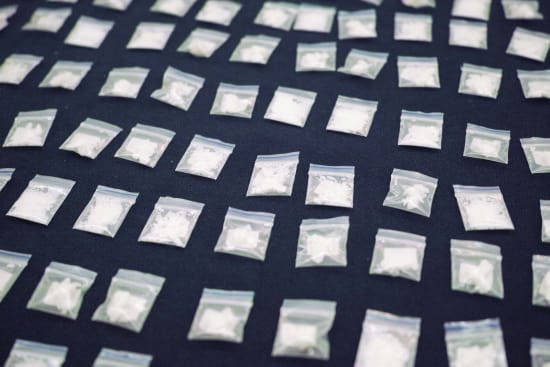
Welcome to our first update newsletter, where we’ll share news about our quest to bring you the best in “undiscovered” stories from and about China.
But first, a question: Did you ever experience a moment where your life could take two wildly distinct paths?
Lin Song did. He’d wanted to be a cop but got rejected because he was one fifth of an inch too short.
In the end, he wound up as a crystal meth peddling drug lord in Changchun, a city in northeastern China better known for manufacturing cars than recreational drugs.
One could call it “Breaking Bad, China-style”—how a nondescript young man, tormented by the loss of his family’s savings in soured real-estate deals, became one of China’s top drug dealers. Incidentally, the original Breaking Bad series was hugely popular in China back in its heyday.
The story of Lin Song was written by Yang Hai and published earlier this year in Chinese by Freezing Point. That publication was among the first to venture into new forms of storytelling in the 1990s, rapidly developing a reputation for compelling feature writing that marked a welcome departure from the wooden stories typical of Chinese state-owned print media of the time.
Even in China, this piece by Yang is not that well-known. Still, it’s a cracking story that deftly mixes in-depth journalism, suspense and telling details about the protagonist with a generous dose of humor.
It’s also a fine example of the types of nonfiction stories that have become increasingly popular in China in recent years. The story also offers a slice of Chinarrative’s story world.
But before we dive into Lin’s tangled tale, here’s a glimpse of what’s in store from Chinarrative.
What to expect from Chinarrative?
In coming update newsletters, we’ll share other kinds of stories from China we want to showcase, including personal essay and memoir. These will be written by Chinese contributors who typically are not professional writers but who still have a special story to share with the world. To this mix, we plan to add Chinarrative originals.
We believe there’s great value in seeking out and selecting compelling stories from China that are in-depth or more intimate and presenting them in an engaging manner.
The aim is to bring tales that entertain and delight readers while expanding their knowledge and understanding of contemporary China.
Chinarrative wants to do this across a range of topics including technology, consumption, real estate and travel. We’d love to hear your feedback.
What kind of China narratives would you like to read?
If you have a friend or colleague you think would enjoy receiving our updates, please share this newsletter with them. They can sign up here.
For more on the people and the thinking behind Chinarrative be sure to check out the related posts on Medium in the Tweets below.

I recently published “Chinarrative Wants to Bring Greater Depth, More Personality to China Stories” https://t.co/JjzFUpIdi0
March 22, 2018
I just published “Nurturing Tomorrow’s Storytellers is Part of Chinarrative’s Long-Term Mission” https://t.co/42oR0DEQoT
April 10, 2018
I just published “China’s Love Affair With Narrative Nonfiction Underpins Chinarrative” https://t.co/lpV7POrP46
May 3, 2018Back to Lin, the crystal meth man.

I recently published “Chinarrative Wants to Bring Greater Depth, More Personality to China Stories” https://t.co/JjzFUpIdi0
March 22, 2018
I just published “Nurturing Tomorrow’s Storytellers is Part of Chinarrative’s Long-Term Mission” https://t.co/42oR0DEQoT
April 10, 2018
I just published “China’s Love Affair With Narrative Nonfiction Underpins Chinarrative” https://t.co/lpV7POrP46
May 3, 2018According to Yang’s account, China’s self-proclaimed Number One Drug Baron was once a bookish and dependable guy who rarely drank and never smoked.
Slightly overweight with closely cropped hair, Lin at one time had some luck as a real-estate agent. But he became increasingly desperate when a string of sideline business deals went bad and he lost most of his family’s savings.
Lin embarked on a urgent search for the next big thing. What could bring in some cash—and lots of it?

He thought he’d found that in a scheme to manufacture fish feed but he was wrong. Still, the process of mixing ingredients had been instructional, and it wasn’t long before Lin “pivoted” to making drugs.
Buoyed by a loan of just over $3,000 he managed to squeeze from his parents, Lin earned a reputation for his prowess in producing the purest of drugs. He even boasted he could cut the time needed to crystallize meth by half compared to rivals.
Though he’s hardly a victim, we can understand Lin’s frustration that, despite being a bright young man full of creative ideas, he failed to make it even as many of his less talented friends thrived. According to Lin:
A person cannot be a failure their entire life.
Yet there’s little in story that suggests Lin felt any real sense of remorse about how drugs made by him could destroy people’s lives, remarking only that they could ruin “an entire country.”
If anything, he seems to blame substance abusers, saying they have:
… no sense of right or wrong, no decency, [and] no bottom limits.
Lin set himself an ambitious target to make more than $30 million dollars from his illicit drug making. But it wasn’t to be. Careless missteps eventually led to the police to his door.
When he was arrested, police discovered more than 11 pounds of crystal meth in his apartment—the largest seizure of drugs in the history of the region’s police force.
Lin is now firmly behind bars.
Until next time,
Colum at Chinarrative


